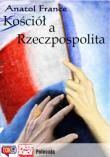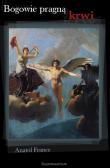
|
« Ludzie, cytaty Portrait Of A Freethinker: Richard Bozarth [1] G. Richard Bozarth has had over 100 articles accepted by Freethought publications, beginning with his first acceptance in 1977. He has written four books and two pamphlets he self-published. He had hoped they would be professionally published, but, like the Rolling Stones said, "You can't always get what you want." That hasn't stopped him. The need to write and the joy of writing have not been diminished by commercial failure, and mostly likely never will be. Bozarth was born George Richard Bozarth on 21 March 1949 in Lakewood, CA, which is one of those cities in that megametroplex usually called LA. His family were Christians, but not seriously into it, which meant he wasn't subjected to very much religious indoctrination during childhood. His family were the kind of people who just assumed he would grow up to be a normal American who was more dedicated to personal success than to personal salvation. Being religious was important to them, but not as important as getting a big piece of the American pie. They most likely assumed he would be religious and probably never thought Atheism was a possibility for him. Because they wanted him to be as successful as possible, they encouraged him to develop his intelligence and, more important, to place high value on being educated. Their assumption was that he would do well in public schools, achieve admission into some university, then enjoy economic success in some white-collar career that would end with him having a good pension supporting his own retirement savings. Bozarth's father had a lot of problems, the worst being alcoholism, so he ruined Lakewood for himself. The decision was to move to another city and start over. That didn't work for him, but it was an important event in Bozarth's life. Moving to Stockton, CA, when he was 8 was traumatic. He found out he was not gifted at being a stranger in a strange land. He couldn't replace the friends he had lost, thus didn't have a best friend again until he was in junior high school. The feeling of being an outsider who no longer knew how to get inside again has never left him. He began looking within himself for what he could not get from others, and discovered a very active imagination that could open worlds of entertainment for him. He realized he didn't need the stories and movies created by others to explore fantasy realms. He could do it himself. He loved reading before he loved writing and never stopped loving it, so it was natural that one day he would want to also write the stories he imagined. That one day happened when he was 12. His father's problems only got worse, which resulted in his parents separating prior to divorcing the same year he discovered he could both imagine and write. By then his father's problems had sunk his family into poverty, so during his teen years his family survived on welfare. His mother's parents made sure his family didn't suffer the physical deprivations of poverty (meaning the necessities of life were never missing), but they couldn't prevent the psychological humiliation of poverty. This only made him feel more outside the wonderful norm that everybody else seemed to be living in. At the same time he realized this: all the inside people, as happy as they seemed to be, were not writing anything unless teachers gave them a writing assignment. If not writing was the price of being inside, he didn't want to be inside. He became a nonconformist before he knew the word existed, then two teachers taught him what the word meant, and also taught him that being a nonconformist was wonderful. During his junior high years Bozarth had two friends who went to church even though they weren't too serious about religionism. This exposure resulted in two serious attacks of religious zeal and becoming born again twice. The first attack faded when the friendship faded and he stopped going to that church. The second attack had more lasting and beneficial consequences. High on Jesus again, this time he thought he ought to read the Bible. He read everything except the prophets because they were too bizarre even for a kid stoned on religion. That was the beginning of the end of his religious zeal because reading the Bible as though it is history instead of fantasy was like trying to read the Tarzan novels or The Lord Of The Rings as though they are history. It didn't happen overnight, but it happened. Two other forces were also at work. One was learning about evolution in the 9th grade, which proved to him there was no need for a supernatural explanation for the origin of the universe or life on Earth. If supernatural explanations weren't necessary for these two awesome events, when, he wondered, were they necessary? Eventually he knew supernatural explanations were never necessary to explain anything. The other force was masturbation, which he liked the first time discovered it shortly after puberty. When he got religion, it made him suffer terribly because masturbation was supposed to be such a terrible sin. His rationality had been overwhelmed, but not defeated. It reacted to the guilt by making him ask this: in what way could masturbation be harmful to himself or to any other person? The answer was obvious: there is no harm in masturbation in the natural world. If there was no physical or psychological harm in masturbation, why should there be and how could there be supernatural harm? If the answer was the consequences suffered in a supernatural realm ruled by a fiercely judging deity, then that was too ridiculous for him to believe. The idea that an entity as awesome as a supreme supernatural one could be offended by masturbation enough to want to torture a person for eternity for enjoying it was just too silly and too irrational to believe. Bozarth became an Atheist, though he still thought for a few more years that petty supernatural entities like ghosts probably existed and petty supernatural power like witches were supposed to have was probably real. Bozarth graduated high school in 1967. He had scholarships and an acceptance to a university. However, by graduation he knew that wasn't the road he would take. He was sick of school. He wanted experiences that would serve him better as a writer. How many writers had achieved good literary results from participating in a war? He knew lots of them had. Well, in 1967 there was a war going on that he could participate in. He had been thinking about it for months, but not talking about it because he didn't want to argue about it with his family or his teachers or with the counselor who had helped him so much in getting his scholarships. After graduation it was time to make a decision. He blew every mind who knew him by enlisting in the U.S. Marine Corps, then telling them when it was too late for them to try to talk him out of it. He believed in the war and in the patriotic duty of enlisting when his country was fighting a war, but all his important reasons for enlisting were personal ones, which is why, when he learned the truth about Vietnam, he never felt personally betrayed like so many other Nam vets did and still do. His belief in the war didn't survive his tour of duty in-country. He didn't have to be a grunt to figure out how wrong and futile the war was. Bozarth enlisted for four years, thinking he would go fight in Nam, then come back to experience what the Corps was like in the States. He didn't know the Corps needed support troops more desperately than it needed combat troops, thus any guy as intelligent as he was who enlisted for four years had almost no chance of being a grunt. That was why he was shocked and horribly disappointed when, shortly before the end of bootcamp, he was told he was destined to be a radio tech, which meant going to more school! He hated it. The kind of thinking that makes a good electronics technician was not the kind of thinking he was good at. He graduated, but was never better than mediocre as a radio tech. He did get to Vietnam. He arrived on 1 April 1969. That turned out to be an omen. His unit was 5th Communications Battalion. He learned to think of it as 5th Comedy Battalion. He had a lot of interesting experiences in Nam, but none of them involved blood and guts and glory. He was in more danger of getting killed in Da Nang's traffic than being killed by Charlie. The literary results have also been disappointing: the first draft of a memoirs, one short story, and several poems. The most important thing that happened to Bozarth in Nam was realizing that his belief in himself as an intellectual was false. He had just barely begun the work necessary to become an intellectual and had progressed far enough to figure out he wasn't one and wouldn't be one unless he did a lot more work. He started by improving his reading choices, beginning with Shakespeare, who blew him away. His first nonfiction selection was The Black Arts by Richard Cavendish. The chapter on witchcraft described the ghastly atrocity called The Inquisition and that was the first time Bozarth felt the emotion of Écrasez l’infâme! That book began his study of religionism, which has not ended. He did not discover Atheist writers until discovering Nietzsche two years later. Nietzsche blew him away ten times harder than Shakespeare had. After Nietzsche he was not merely an Atheist, he was a militant Atheist. Bozarth reenlisted in the Corps in 1970 for six years because the Corps offered techs a lot of money to reenlist ($10,000), because he didn't know what he would do if he got out, and because he thought the Corps still had some interesting experiences to offer. It did, but not enough of them, which was why his interest in being a Marine ended two years before his discharge date. After that it was mostly a struggle to survive those two years without losing his sergeant stripes. He pushed the tolerance of his glorious leaders more than once, but not quite hard enough to lose his rank. When he left the Corps in August 1976, he was happy and didn't care what he would be doing in the future as long as he was doing it as a civilian. His mother had moved to Vacaville, CA, to be near her mother after her father had died in 1972. Bozarth settled in that small city. The best job he could find was being a janitor at a big tourist-trap restaurant/store called The Nut Tree. It was a good place to recover from the Corps, but not a place to stay in. When he was ready to get on more seriously with his life, a wonderful opportunity knocked.
« Ludzie, cytaty (Publikacja: 15-08-2003 )
str. 2625 |
||||||||||||||||||||||||||||||||||||||||||||||||||||||||||||||||||||||||||||||||||||||||||||||||||||||||||||||||||
| [ Regulamin publikacji ] [ Bannery ] [ Mapa portalu ] [ Reklama ] [ Sklep ] [ Zarejestruj się ] [ Kontakt ] Racjonalista © Copyright 2000-2018 (e-mail: redakcja | administrator) | ||




